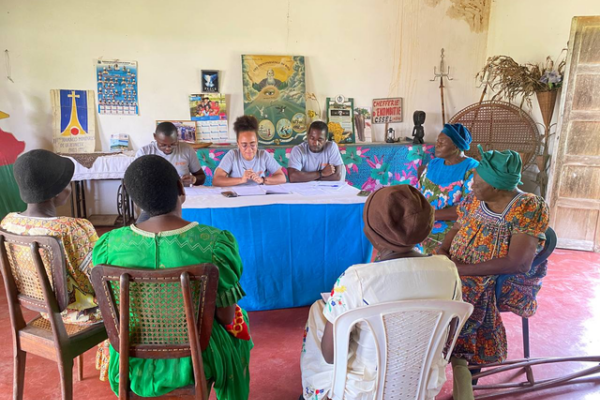Kuala Lumpur, Malaysia – Earthworm Foundation (EF) stresses that positive worker retention strategies in Malaysia’s palm oil industry are a business return and lead to win-win situations for workers and employers. In conjunction with the International Migrants Day on 18th December 2019, EF released a new video which showcases how good practices in line with international labour standards can decrease worker abscondment, increase worker retention and improve communication between workers and management.
These positive commitments come on the heels of previous reports of unfair labour practices in the industry; which in some cases include indicators of forced and bonded labour. In Malaysia, one of the main challenges in the palm oil industry is a shortage of workers. This industry relies heavily on migrant labour, which makes up about 77 percent of the plantation workforce.
With the influx of migrant workers from countries such as Indonesia, Bangladesh, India, Nepal and Myanmar, some companies rely on negative retention practices to maintain a steady workforce and to reduce the rates of abscondment. This includes withholding passports, restricting movement, restricting freedom of association, wage deductions without permits or requesting security deposits from workers.
“There is a misconception among employers that these negative retention strategies will reduce migrant worker abscondment. On the contrary, EF has seen, as evidenced in our video, that good practices are more effective at keeping a stable workforce in the long run. This is especially true for companies that implement the ‘No Deforestation, No Peat and No Exploitation (NDPE) policy principle, in which the ‘No Exploitation’ component of NDPE commit to ensuring there is no exploitation of workers or communities where their operations are located,” remarked Natasha Mahendran, Social and Human Rights Manager of EF Malaysia.
The good practices outlined in the video The video captures a case study of a palm oil company that has seen abscondment rates drop to almost 30% after adopting intentionally recognised labour and human rights standards in their sustainability policy. Through testimonials from both migrant workers and the management at their sites in Segamat, Johor, the video sheds light on what these positive retention strategies look in practice to guide palm oil and plantation companies.
Moreover, Natasha says that EF hopes that more businesses in this industry will change their labour practices for the better, and reap the rewards. “Essentially, migrant workers are hard-working individuals who are seeking better opportunities for themselves and their families – boosting economic growth in Malaysia and in their countries of origin in the process.”


